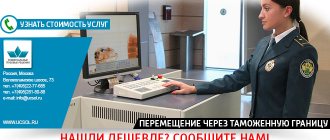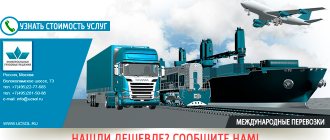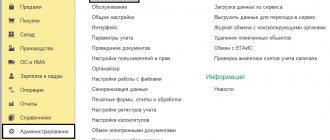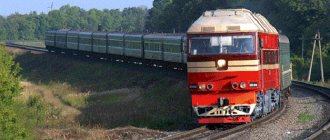Movement of goods by pipeline transport and power lines
Import into the customs territory and export from this territory of goods transported by pipeline transport is permitted after the goods are released in accordance with the declared customs procedure. When submitting a customs declaration, the actual presentation of goods transported by pipeline transport to the customs authority is not required. When importing into the customs union or exporting from this territory goods transported by pipeline transport, mixing of goods is allowed, as well as changes in the quantity and condition (quality) of goods due to technological features of transportation and specific characteristics of goods in accordance with technical regulations and national standards in force in the states — members of the customs union.
The quantity of goods transported by pipeline transport is determined on the basis of readings from commercial metering devices installed in technologically determined places in accordance with the Labor Code of the Customs Union, acts on the actual supply of goods under the relevant foreign trade agreement, delivery and acceptance certificates, quality certificates of goods and other similar documents confirming the address distribution of volumes of produced, delivered and consumed goods transported by pipeline transport for the billing period determined in accordance with the contract. Instruments for recording goods transported by pipeline transport and along power lines are installed in the customs territory of the Customs Union. The installation sites for metering devices for goods transported by pipeline transport and along power lines across the customs border may be located outside this territory, subject to the existence of international treaties of a member state of the customs union and a neighboring state that determine their operation and the procedure for access of customs officials.
In order to prevent unauthorized access and changes in information in the readings of metering devices for goods transported by pipeline transport and along power lines, customs authorities impose identification means on such devices. When customs declaring goods transported by pipeline transport, exported from the customs territory of the Customs Union, the readings of commercial metering devices located in the territory of the state of departure of these goods or commercial metering devices located in the territory of a neighboring state are used. Import into the customs territory and export from this territory of goods transported along power lines is permitted before submitting a customs declaration to the customs authority. Declaration is carried out with the subsequent submission of a customs declaration for the placement of electrical energy under customs procedures for release for domestic consumption or export, respectively, no later than the 20th day of the month following each calendar month of its actual supply. When submitting a customs declaration, the actual presentation of electrical energy to the customs authority is not required.
The actual amount of electrical energy imported or exported is subject to customs declaration. When customs declaring electrical energy exported from the customs territory of the Customs Union, the readings of metering devices located in the territory of the state of departure of this electrical energy or metering devices located in the territory of a neighboring state are used. When customs declaring electrical energy imported, the readings of metering devices located on the territory of the state of destination of this electrical energy or metering devices located on the territory of a neighboring state are used. Customs transit of foreign goods transported by pipeline transport through the customs territory of the customs union and (or) through the territory of a state that is not a member of the customs union, between 2 points located in places where commercial metering devices are installed, is applied in accordance with international treaties and (or) legislation of the member states of the customs union.
Electrical energy transported along power lines through the customs territory of the Customs Union in conditions of parallel operation of energy systems is not subject to placement under the customs procedure of customs transit. It is allowed to change the specific characteristics of transit goods transported through the customs territory of the Customs Union by pipeline transport, due to the technological features of transportation, in accordance with technical regulations and national standards in force in the member states of the Customs Union.
Tax is defined as a percentage of the tax base corresponding to the tax rate.Based on the results of the reporting (tax) period, taxpayers calculate the amount of the advance payment based on the tax rate and profit calculated on an accrual basis.
During the reporting period, taxpayers calculate the amount of the monthly advance payment:
- in the 1st quarter of the year = advance payment due in the last quarter of the previous year.
- in the 2nd quarter of the year = 1/3 * advance payment for the first quarter
- in the 3rd quarter of the year = 1/3 * (advance payment for the first half of the year - advance payment for the first quarter).
- in the 4th quarter of the year = 1/3 * (advance payment for nine months - advance payment for half a year)
Taxpayers have the right to switch to calculating monthly advance payments based on actual profit received by notifying the tax authority no later than December 31 of the year preceding the year of transition.
In this case, advance payments are calculated based on the tax rate and the actual profit received, calculated on an accrual basis from the beginning of the tax period to the end of the corresponding month.
Only quarterly advance payments based on the results of the reporting period are paid by:
- organizations whose sales income over the previous 4 quarters did not exceed an average of 3,000,000 rubles for each quarter,
- budgetary institutions,
- foreign organizations operating in the Russian Federation through a permanent representative office,
- non-profit organizations that do not have income from sales,
- members of simple partnerships,
- investors in production sharing agreements,
- beneficiaries under trust management agreements.
The tax at the end of the year is paid no later than March 28 of the following year.
Advance payments based on the results of the reporting period are paid no later than 28 days from the end of the reporting period.
Monthly advance payments are paid no later than the 28th day of each month.
Taxpayers who calculate monthly advance payments based on actually received profits pay them no later than the 28th day of the month following the month for which the tax is calculated.
The amounts of paid monthly advance payments are counted when paying advance payments at the end of the reporting period. Advance payments based on the results of the reporting period are counted against the payment of tax based on the results of the tax period.
Features of tax calculation and payment:
- organizations with separate divisions
- residents of the Special Economic Zone in the Kaliningrad region
Eurasian Economic Commission
Article 334. Scope of application of this chapter
This chapter defines the features of the movement of goods across the customs border by pipeline transport and along power lines, not specified by other provisions of this Code.
To the extent not regulated by this Code, the procedure for moving goods across the customs border by pipeline transport and along power lines is determined by legislation and (or) international treaties of the member states of the Customs Union.
Article 335. Peculiarities of import, export and customs declaration of goods transported by pipeline transport
1. Import into the customs territory of the Customs Union and export from this territory of goods transported by pipeline transport is permitted after the goods are released in accordance with the declared customs procedure.
2. When submitting a customs declaration, the actual presentation of goods transported by pipeline transport to the customs authority is not required.
3. When importing into the customs territory of the Customs Union or exporting from this territory of goods transported by pipeline transport, mixing of goods is allowed, as well as changes in the quantity and condition (quality) of goods due to technological features of transportation and specific characteristics of goods in accordance with technical regulations and national standards , operating in the member states of the Customs Union.
4. Features of customs declaration of goods transported by pipeline transport are determined in accordance with Article 194 of this Code.
5. The quantity of goods transported by pipeline transport is determined based on the readings of metering devices installed in technologically determined places in accordance with Article 337 of this Code, acts on the actual supply of goods under the relevant foreign trade agreement, acceptance certificates, quality certificates of goods and other similar documents confirming the targeted distribution of volumes of produced, supplied and consumed goods transported by pipeline transport for the billing period determined in accordance with the legislation of the member states of the Customs Union.
(clause 5 as amended by the Protocol dated April 16, 2010)
6. When customs declaring goods transported by pipeline transport, exported from the customs territory of the Customs Union, the readings of metering devices located on the territory of the state of departure of these goods, or metering devices located on the territory of a neighboring state or in other places, are used, in accordance with paragraph 1 Article 337 of this Code.
When customs declaring goods transported by pipeline transport, imported into the customs territory of the Customs Union, the readings of metering devices located on the territory of the state of destination of these goods, or metering devices located on the territory of a neighboring state or in other places, are used, in accordance with paragraph 1 of Article 337 of this Code.
(clause 6 as amended by the Protocol dated April 16, 2010)
7. When customs declaring natural gas transported by pipeline transport, to confirm its quantity and quality, acts on actual supplies of natural gas are used, drawn up on the basis of readings from metering devices located at the places where it is delivered to counterparties, determined by the terms of foreign trade agreements on the basis of which such movement is carried out.
(Clause 7 introduced by the Protocol dated April 16, 2010)
Article 336. Peculiarities of import, export and customs declaration of goods transported along power lines
1. Import into the customs territory of the Customs Union and export from this territory of goods transported via power lines (hereinafter referred to as electrical energy in this chapter) is permitted before submitting a customs declaration to the customs authority. Declaration is carried out with the subsequent submission of a customs declaration for the placement of electrical energy under customs procedures for release for domestic consumption or export, respectively, no later than the 20th (twentieth) day of the month following each calendar month of its actual delivery.
2. When submitting a customs declaration, the actual presentation of electrical energy to the customs authority is not required.
3. The actual amount of electrical energy imported or exported is subject to customs declaration. The amount of electrical energy is determined based on the readings of metering devices installed in technologically determined places and recording the movement of electrical energy, acts on the actual supply of electrical energy under the relevant foreign trade agreement, acceptance certificates and other documents confirming the actual movement of electrical energy, such as balance flows electrical energy (algebraic sum of electrical energy flows in opposite directions along all operating interstate power lines of all voltage classes) for each calendar month, unless a different procedure for determining the amount of electrical energy is established by the legislation of the member states of the Customs Union.
The calculated value of the balance flow is adjusted to the amount of electrical energy losses occurring during the movement of electrical energy in networks in accordance with technical regulations and national standards in force in the member states of the Customs Union.
4. When customs declaring electrical energy exported from the customs territory of the Customs Union, the readings of metering devices located on the territory of the state of departure of this electrical energy, or metering devices located on the territory of a neighboring state, are used in accordance with paragraph 1 of Article 337 of this Code.
When customs declaring electrical energy imported into the customs territory of the Customs Union, the readings of metering devices located on the territory of the state of destination of this electrical energy, or metering devices located on the territory of a neighboring state, are used in accordance with paragraph 1 of Article 337 of this Code.
5. Features of customs declaration of goods transported along power lines are determined in accordance with Article 194 of this Code.
Article 337. Places of installation of metering devices for goods transported by pipeline transport and along power lines
1. Instruments for recording goods transported by pipeline transport and along power lines are installed in the customs territory of the Customs Union.
The installation sites for metering devices for goods transported by pipeline transport and along power lines across the customs border may be located outside this territory, subject to the existence of international treaties of a member state of the Customs Union and a neighboring state that determine their operation and the procedure for access of customs officials.
Metering devices for natural gas transported by pipeline transport may be located in the customs territory of the Customs Union and (or) outside it in places where measurements are taken due to the technology of natural gas transportation, and determined by the terms of foreign trade agreements on the basis of which such movement is carried out.
(paragraph introduced by the Protocol dated April 16, 2010)
2. The installation locations for metering devices for goods transported by pipeline transport and along power lines when crossing the customs border are approved in accordance with the legislation of the member states of the Customs Union.
3. In order to prevent unauthorized access and changes in information in the readings of meters located in the customs territory of the Customs Union for goods transported by pipeline transport and along power lines, customs authorities impose identification means on such devices.
(clause 3 as amended by the Protocol dated April 16, 2010)
Article 338. Identification of goods transported by pipeline transport and along power lines
Identification of goods transported by pipeline transport and along power lines is not carried out, which does not prevent customs authorities from establishing for customs purposes the quantity, quality and other characteristics of goods, using information contained in documents, readings of meters and other measuring instruments.
Article 339. Customs declaration of transit of goods transported by pipeline transport and along power lines
1. Customs transit of foreign goods transported by pipeline transport through the customs territory of the Customs Union and (or) through the territory of a state that is not a member of the Customs Union, between points located in places where metering devices are installed, is applied in accordance with:
international treaties of the member states of the Customs Union and the legislation of the member states of the Customs Union - if such transit is carried out through the territories of all member states of the Customs Union;
an international treaty between two member states of the Customs Union and (or) the legislation of these member states of the Customs Union - if such transit is carried out through the territories of only two member states of the Customs Union;
legislation of a member state of the Customs Union - if such transit is carried out only through the territory of this state.
(clause 1 as amended by the Protocol dated April 16, 2010)
2. Electrical energy transported along power lines through the customs territory of the Customs Union in conditions of parallel operation of energy systems is not subject to placement under the customs procedure of customs transit. In this case, no later than the 20th (twentieth) day of the month following each calendar month of actual movement of electrical energy, a written application must be submitted to the customs authority indicating information on the volume of movement for the billing period, the conditional cost of electrical energy and other information established by the legislation of the states - members of the Customs Union. (clause 2 as amended by the Protocol dated April 16, 2010)
3. It is allowed to change the specific characteristics of transit goods transported through the customs territory of the Customs Union by pipeline transport due to technological features of transportation, in accordance with technical regulations and national standards in force in the member states of the Customs Union.
Customs Code of the Customs Union
Article 334. Scope of application of this chapterThis chapter defines the features of the movement of goods across the customs border by pipeline transport and along power lines, not specified by other provisions of this Code.
To the extent not regulated by this Code, the procedure for moving goods across the customs border by pipeline transport and along power lines is determined by legislation and (or) international treaties of the member states of the customs union.
Article 335. Peculiarities of import, export and customs declaration of goods transported by pipeline transport
1. Import into the customs territory of the customs union and export from this territory of goods transported by pipeline transport is permitted after the goods are released in accordance with the declared customs procedure.
2. When submitting a customs declaration, the actual presentation of goods transported by pipeline transport to the customs authority is not required.
3. When importing into the customs territory of the Customs Union or exporting from this territory of goods transported by pipeline transport, mixing of goods is allowed, as well as changes in the quantity and condition (quality) of goods due to technological features of transportation and specific characteristics of goods in accordance with technical regulations and national standards , operating in the member states of the customs union.
4. Features of customs declaration of goods transported by pipeline transport are determined in accordance with Article 194 of this Code.
5. The quantity of goods transported by pipeline transport is determined on the basis of readings from commercial metering devices installed in technologically determined places in accordance with Article 337 of this Code, acts on the actual supply of goods under the relevant foreign trade agreement, acceptance certificates, quality certificates of goods and others similar documents confirming the targeted distribution of volumes of produced, supplied and consumed goods transported by pipeline transport for the billing period determined in accordance with the legislation of the member states of the customs union.
6. When customs declaring goods transported by pipeline transport, exported from the customs territory of the Customs Union, the readings of commercial metering devices located in the territory of the state of departure of these goods, or commercial metering devices located in the territory of a neighboring state, are used in accordance with paragraph 1 of Article 337 of this Code.
When customs declaring goods transported by pipeline transport, imported into the customs territory of the Customs Union, the readings of commercial metering devices located on the territory of the state of destination of these goods, or commercial metering devices located on the territory of a neighboring state, are used in accordance with paragraph 1 of Article 337 of this Code .
Article 336. Peculiarities of import, export and customs declaration of goods transported along power lines
1. Import into the customs territory of the customs union and export from this territory of goods transported via power lines (hereinafter in this chapter - electrical energy) is allowed before submitting a customs declaration to the customs authority. Declaration is carried out with the subsequent submission of a customs declaration for the placement of electrical energy under customs procedures for release for domestic consumption or export, respectively, no later than the 20th (twentieth) day of the month following each calendar month of its actual supply.
2. When submitting a customs declaration, the actual presentation of electrical energy to the customs authority is not required.
3. The actual amount of electrical energy imported or exported is subject to customs declaration. The amount of electrical energy is determined based on the readings of metering devices installed in technologically determined places and recording the movement of electrical energy, acts on the actual supply of electrical energy under the relevant foreign trade agreement, acceptance certificates and other documents confirming the actual movement of electrical energy, such as balance flows electrical energy (algebraic sum of electrical energy flows in opposite directions along all operating interstate power lines of all voltage classes) for each calendar month, unless a different procedure for determining the amount of electrical energy is established by the legislation of the member states of the customs union.
The calculated value of the balance flow is adjusted to the amount of electrical energy losses occurring during the movement of electrical energy in networks in accordance with technical regulations and national standards in force in the member states of the customs union.
4. When customs declaring electrical energy exported from the customs territory of the Customs Union, the readings of metering devices located on the territory of the state of departure of this electrical energy, or metering devices located on the territory of a neighboring state, are used in accordance with paragraph 1 of Article 337 of this Code.
When customs declaring electrical energy imported into the customs territory of the Customs Union, the readings of metering devices located on the territory of the state of destination of this electrical energy, or metering devices located on the territory of a neighboring state, are used in accordance with paragraph 1 of Article 337 of this Code.
5. Features of customs declaration of goods transported along power lines are determined in accordance with Article 194 of this Code.
Article 337. Places of installation of metering devices for goods transported by pipeline transport and along power lines
1. Instruments for recording goods transported by pipeline transport and along power lines are installed in the customs territory of the Customs Union.
The installation sites for metering devices for goods transported by pipeline transport and along power lines across the customs border may be located outside this territory, subject to the existence of international treaties of a member state of the customs union and a neighboring state that determine their operation and the procedure for access of customs officials.
2. The installation locations for metering devices for goods transported by pipeline transport and along power lines when crossing the customs border are approved in accordance with the legislation of the member states of the customs union.
3. In order to prevent unauthorized access and changes in information in the readings of metering devices for goods transported by pipeline transport and along power lines, customs authorities impose identification means on such devices.
Article 338. Identification of goods transported by pipeline transport and along power lines
Identification of goods transported by pipeline transport and along power lines is not carried out, which does not prevent customs authorities from establishing for customs purposes the quantity, quality and other characteristics of goods, using information contained in documents, readings of meters and other measuring instruments.
Article 339. Customs declaration of transit of goods transported by pipeline transport and along power lines
1. Customs transit of foreign goods transported by pipeline transport through the customs territory of the customs union and (or) through the territory of a state that is not a member of the customs union, between 2 (two) points located in places where commercial metering devices are installed, is applied in accordance with international treaties and (or) legislation of the member states of the customs union.
2. Electrical energy transported along power lines through the customs territory of the Customs Union in conditions of parallel operation of energy systems is not subject to placement under the customs procedure of customs transit. In this case, no later than the 20th (twentieth) day of the month following each calendar month of actual movement of electrical energy, a written application must be submitted to the customs authority indicating information on the volume of movement for the billing period, the conditional cost of electrical energy and other established information.
3. It is allowed to change the specific characteristics of transit goods transported through the customs territory of the Customs Union by pipeline transport due to technological features of transportation, in accordance with technical regulations and national standards in force in the member states of the Customs Union.





